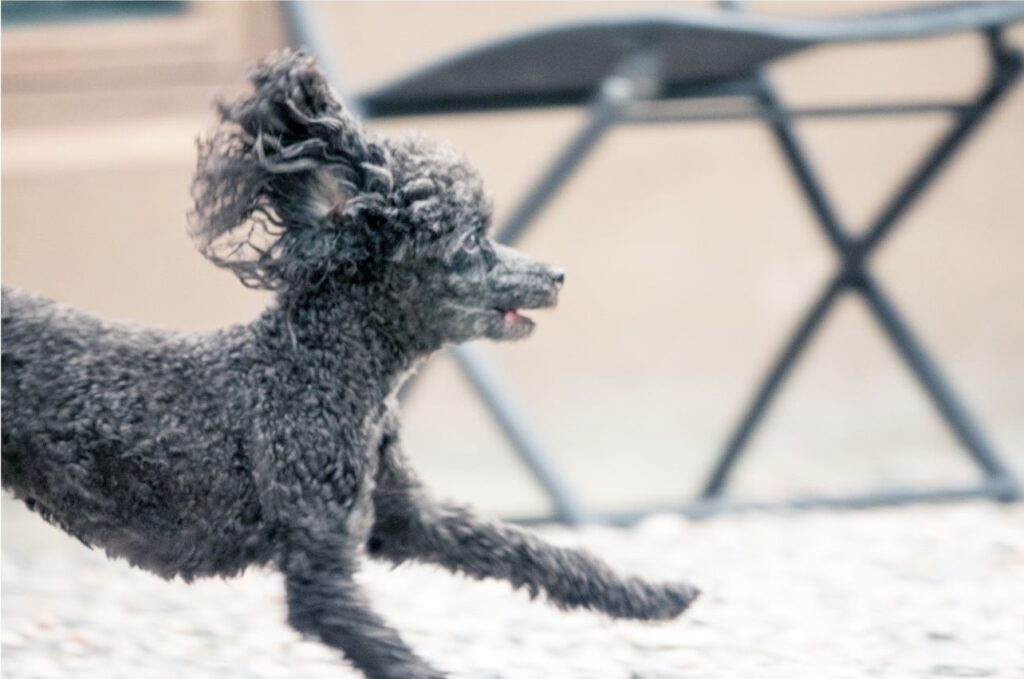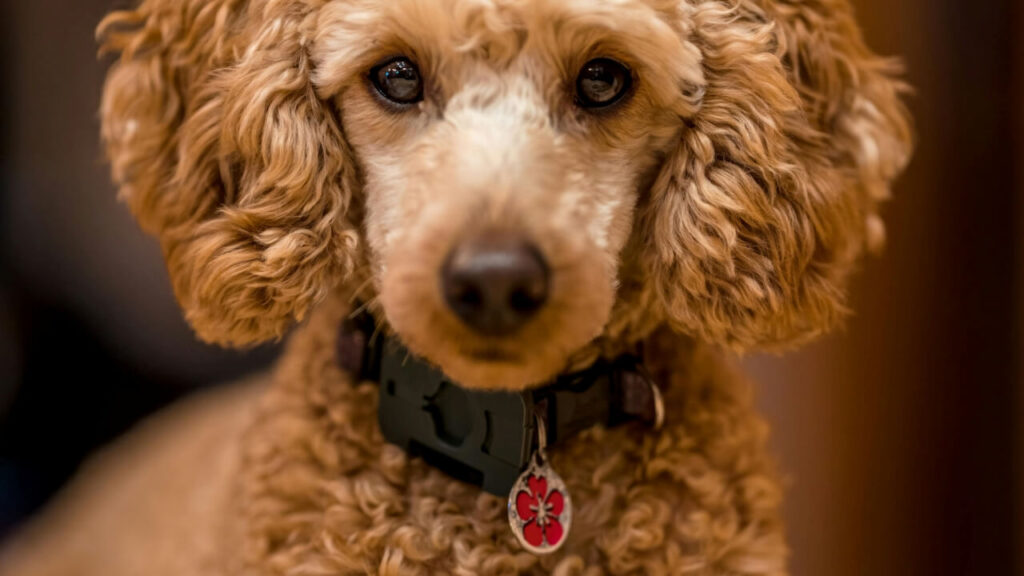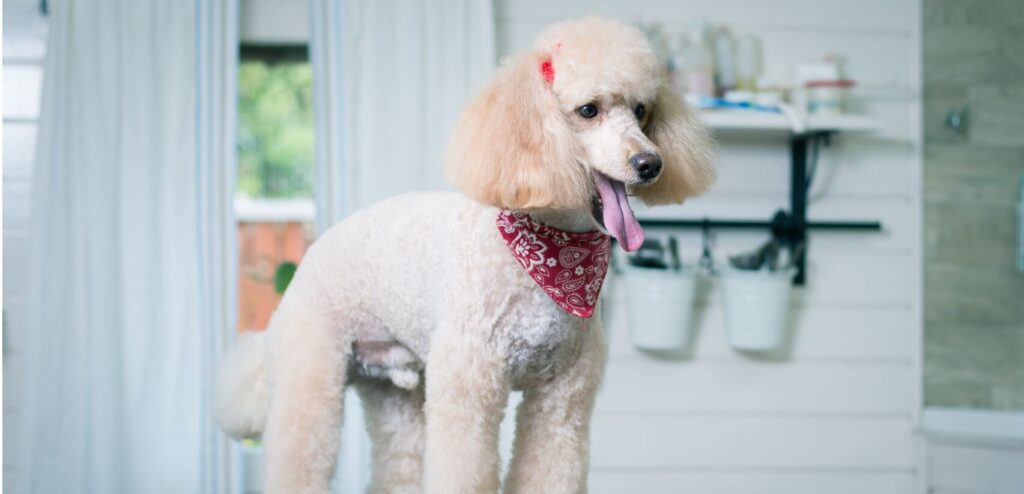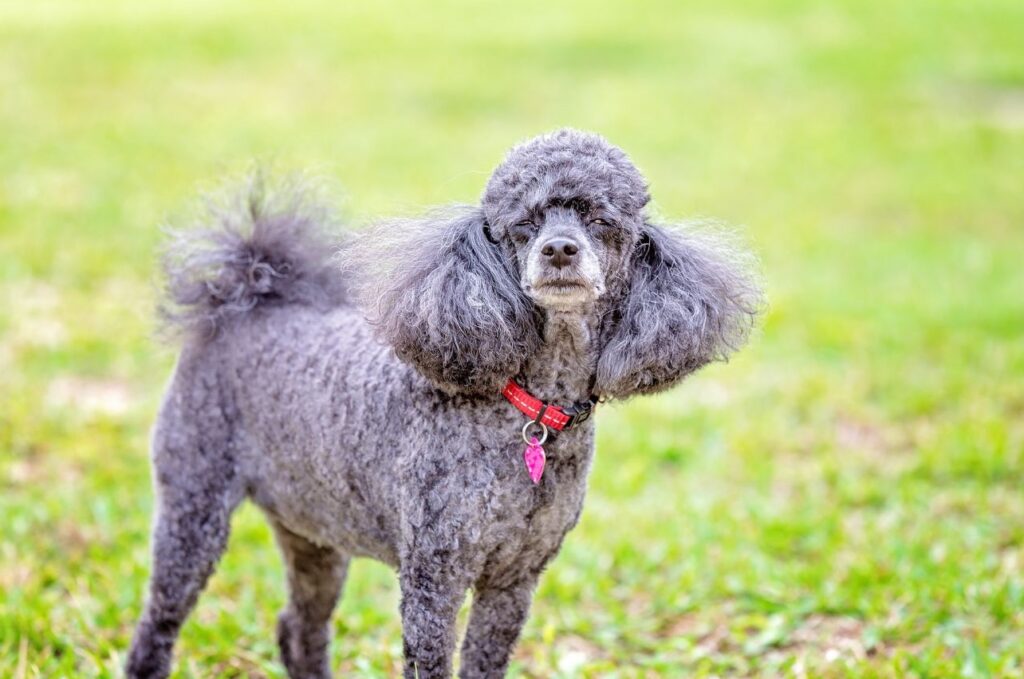Training older mini poodles can be incredibly rewarding, not just for your furry friend but for you as well. Whether you’ve adopted an older mini poodle or your beloved pet is simply getting on in years, understanding how to effectively train them is crucial.
This guide is tailored for mini poodle enthusiasts and pet owners who wish to ensure their older dogs not only learn new tricks but also lead fulfilling lives.
In this blog post, we’ll explore various techniques and tips to help you succeed in training your older mini poodle. We’ll cover essential training methods, common challenges, and the tools you’ll need to get started. By the end, you’ll be well-equipped with the knowledge and confidence to train your older mini poodle effectively.
Understanding Your Mini Poodle
Behavioral Traits and Characteristics
Mini poodles are known for their intelligence, agility, and affectionate nature. Despite their small size, they possess a big personality and a zest for life.
Understanding these behavioral traits is the first step in successful training. Older mini poodles may have established habits, but their intelligence makes them highly trainable at any age.
Importance of Knowing Your Dog’s History
Every dog has a unique history that shapes its behavior. Knowing where your mini poodle comes from, its experiences, and its previous training can provide valuable insights into how best to approach its training.
If your dog is a rescue, it may have had traumatic experiences that require a gentle and patient approach.
Individual Personality Matters
Just like humans, dogs have individual personalities. Some mini poodles may be more energetic and playful, while others might be reserved and calm. Tailoring your training techniques to suit your dog’s personality will make the process more effective and enjoyable for both of you.

Essential Training Techniques
Positive Reinforcement Strategies
Positive reinforcement is one of the most effective training methods for older mini poodles. This involves rewarding your dog for good behavior, which encourages them to repeat it.
Treats, praise, and play are excellent rewards. Consistency is key; ensure you reward your dog immediately after they perform the desired behavior.
Basic Commands and Their Importance
Teaching basic commands like “sit,” “stay,” “come,” and “leave it” are essential for day-to-day life. These commands not only make your life easier but also keep your dog safe.
Start with short, frequent training sessions and gradually increase the duration as your dog becomes more comfortable.
Addressing Common Behavioral Issues
Older mini poodles may have developed certain behavioral issues like excessive barking, separation anxiety, or fearfulness. Addressing these issues requires patience and consistency.
Use positive reinforcement to encourage good behavior and consult a professional if needed.
Training Challenges and How to Overcome Them
Patience and Consistency
Training an older dog requires more patience than training a puppy. Older mini poodles may take longer to grasp new commands, but with consistent effort, they will learn. Maintain a calm and patient demeanor, as frustration can hinder progress.
Tailoring Training Methods
Every dog is different, and what works for one may not work for another. Tailor your training methods to suit your dog’s needs.
For example, if your dog is food-motivated, use treats as rewards. If they prefer toys, incorporate play into your training sessions.
Understanding Limitations
Older dogs may have physical limitations that affect their ability to perform certain tasks. Be mindful of these limitations and set realistic goals. Avoid strenuous activities that could cause discomfort or injury and focus on exercises that promote mental stimulation.
Creating a Training Schedule
The Importance of Routine
Routine is essential in training older dogs. It provides structure and helps your mini poodle understand what is expected of them. Establish a daily training schedule that includes set times for training, feeding, and exercise.
Balancing Physical Exercise and Mental Stimulation
Older mini poodles still need physical exercise to stay healthy, but mental stimulation is equally important. Incorporate puzzle toys, scent games, and interactive play into your training routine to keep your dog mentally sharp.
Tips for Maintaining Consistency
Consistency is crucial for successful training. Make training sessions a part of your daily routine and involve all family members to ensure everyone is on the same page. Keep sessions short and fun to maintain your dog’s interest and enthusiasm.

Tools and Resources for Mini Poodle Training
Recommended Training Tools
Investing in the right tools can make training more effective. A good quality leash, clicker, and a variety of treats are essential. Additionally, consider puzzle toys and interactive feeders to keep your dog engaged during training.
The Role of Professional Trainers
If you’re struggling with training your older mini poodle, seeking help from a professional trainer can be beneficial. Professional trainers can provide personalized guidance and address specific behavioral issues. Look for trainers who specialize in positive reinforcement techniques.
Training Classes
Participating in training classes can be a great way to socialize your dog and improve its skills. Many classes cater specifically to older dogs, providing age-appropriate training and social opportunities.
Celebrating Success and Building a Strong Bond
The Importance of Acknowledging Progress
Celebrating small victories is important in maintaining motivation for both you and your dog. Acknowledge and reward your dog’s progress regularly. This positive reinforcement will encourage your mini poodle to continue learning and improving.
Strategies for Strengthening the Bond
Training is not just about teaching commands; it’s also about building a strong bond with your dog. Spend quality time with your mini poodle outside of training sessions.
Activities like walks, playtime, and even quiet moments together can strengthen your relationship.
The Joy of a Well-Trained Dog
A well-trained dog is a joy to live with. It enhances your dog’s quality of life and makes interactions more enjoyable for both of you. Remember, the goal of training is not just obedience but also creating a harmonious and loving relationship.

Conclusion
Training older mini poodles may come with its challenges, but the rewards are well worth the effort. By understanding your dog’s unique traits, using positive reinforcement, and maintaining consistency, you can successfully train your older mini poodle. Remember to be patient and celebrate every small victory along the way.
If you have any questions or need further assistance, we’re here to help. Reach out to our team of experts or join our community of mini poodle enthusiasts. Happy training!

